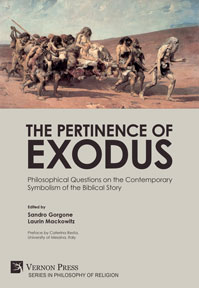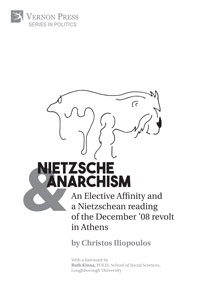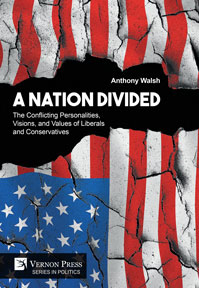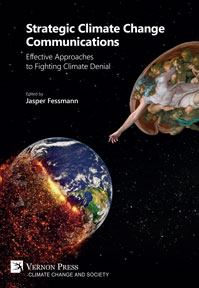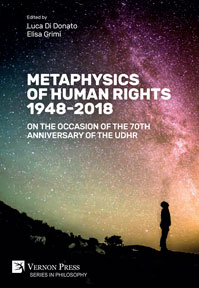Search
Browse
by Publication status
by Subject
Anthropology (26) Art (171) Business and Finance (38) Cognitive Science and Psychology (63) Communication and Journalism (51) Economics (116) Education (71) History (169) Human Geography (23) Interdisciplinary (43) Language and Linguistics (178) Law (16) Music Studies (18) Philosophy (222) Political Science and International Relations (127) Sociology (404) Statistics and Quantitative Methods (21)by Series
Series in Literary Studies (62) Series in Philosophy (57) Series in Education (49) Series in Sociology (42) Series in World History (31) Series in Politics (30) Bridging Languages and Scholarship (26) Series in Language and Linguistics (25) Cognitive Science and Psychology (20) Series in Philosophy of Religion (20) Series in American History (19) Series in Art (19) Critical Perspectives on Social Science (16) Series in Cinema and Culture (16) Curating and Interpreting Culture (15) Series on the History of Art (14) Series in Anthropology (13) Series in Critical Media Studies (13) Economics (13) Series in Business and Finance (12) Series in Music (12) Series in Performing Arts (9) Philosophy of Personalism (8) Series in Communication (8) Series in Law (8) Series in Economic Methodology (7) Series on Climate Change and Society (7) Classics in Economics (6) Series in Economic Development (6) Women's Studies (6) Philosophy of Forgiveness (5) Series in Built Environment (5) Series in Economic History (5) Series in Philosophy of Science (4) Series in Social Equality and Justice (4) Series on the History of Science (4) Serie en Sociología (3) Series in Contemporary History (3) Series in Creative Writing Studies (3) Series in Design (3) The Interdisciplinary Built Environment (3) Series in Heritage Studies (2) Series in Innovation Studies (2) Serie en Ciencias Políticas (1) Serie en Comunicación y Medios (1) Serie en Entorno Construido (1) Serie en Estudios Culturales (1) Serie En Estudios Literarios (1) Serie en Filosofía (1) Serie en Música (1) Series in Classical Studies (1) Series in Economics of Technological Change (1) Series in Philosophy of Race (1) Series in Urban Studies (1)by Language
English Spanishby Author
Browsing with filters
The Pertinence of Exodus: Philosophical Questions on the Contemporary Symbolism of the Biblical Story
Edited by
Sandro Gorgone, University of Messina, Italy
and Laurin Mackowitz, University of Innsbruck, Austria
Availability: In stock
216pp. ¦ $61 £47 €54
The Exodus has a risky and combative character that links individuals to their unconscious, to the uncertainty of their reality, and to the possibility of the disturbing event of the incalculable arrival of the Other. This encounter with the unknown does not expect a messianic salvation but a human solution, which is aware that change requires the abandonment of self-referential identities. This eccentricity is more than evasive desertion or escapism, but an experiment with new modes of organizing community that grows on the responsibilities that go with it. This collected volume gathers contemporary philosophical perspectives on the Exodus, examining the story’s symbolic potentials and dynamics in the light of current social political events. The imagination of the Promised Land, the figure of the migrant, the provisional and precarious dwelling of the camp, the promise of a better future or the gradual estrangement from inherited habits are all challenges of our time that are already conceptualized in the Exodus. The authors reaffirm the pertinence of the story by addressing the fundamental link between the ancient narrative and the human condition of the 21st century.
Nietzsche & Anarchism: An Elective Affinity and a Nietzschean reading of the December ’08 revolt in Athens
February 2019 / ISBN: 978-1-62273-603-4Availability: In stock
222pp. ¦ $59 £44 €50
This book aims to establish the bond between Friedrich Nietzsche and the anarchists, through the apparatus of “elective affinity”, and to challenge the boundaries of several anarchist trends – especially “classical” and “post” anarchism – and “ideologies” like anarchism and libertarian Marxism. Moreover, it highlights the importance of reading Nietzsche politically, in a radical way, to understand his utility for the contemporary anarchist movement. The review of the literature concerning the Nietzsche-anarchy relationship shows the previously limited bibliography and stresses the possibility of exploring this connection, with the methodological help of Michael Löwy’s concept of “elective affinity”. The significance of this finding is that the relevant affinity may contribute to an alternative, to the dominant, perception of anarchism as an ideology. It may also designate its special features together with its weaknesses, meaning the objections of Nietzsche to certain aspects of the anarchist practices and worldview (violence, resentment, bad conscience), thus opening a whole new road of self-criticism for the anarchists of the twenty first century. In addition, the location and analysis of the elective affinity serves the debunking of the Nietzschean concepts used by conservative and right-wing readings in order to appropriate Nietzsche, and of the accusations that the German philosopher had unleashed against anarchists, which reveals his misunderstanding of anarchist politics. The final part of this book applies the whole analysis above on a Nietzschean reading of the December ’08 revolt in Athens based on the “Of the Three Metamorphoses” discourse from Thus Spoke Zarathustra, offering an alternative view of the events that shook Greece and also had an important global impact.
A Nation Divided: The Conflicting Personalities, Visions, and Values of Liberals and Conservatives
Anthony Walsh, Boise State University
Availability: In stock
188pp. ¦ $59 £44 €50
Activists have long claimed that “the personal is political”, but this book posits the converse: that the political is personal. The United States today is bitterly divided. It is less an aspirational melting pot of immigrants and more a salad bowl made up of distinct, often clashing flavors. The successive elections of two divisive presidents—one committed to the perennial leftist dream of “fundamental change” and the other to a conservative vision of “Making America Great Again”—have exacerbated what is arguably the greatest rift in politics since the election of Abraham Lincoln. Taking inspiration from Coleridge’s belief that all humans are temperamentally destined to follow the path of Plato the Idealist or Aristotle the Realist, this book examines the political divide in terms of these temperamental differences. Liberals’ and conservatives’ views of human nature have a large bearing on the political policies they espouse, but their temperaments and personalities have the most significant impact. This book analyses the personality traits of liberals and conservatives in terms of the “Big Five” model—openness to experience, conscientiousness, extraversion, agreeableness, and neuroticism. Conservatives are found in almost all studies to be more conscientious, agreeable, and extroverted, while liberals are found to be more open to new experience and neurotic. The political divisions I explore in this book are all essentially fueled by personality differences. There is a deepening divide between liberals and conservatives in the battle for America’s soul: one side seeks to steer the nation sharply to the left into socialist selfdom, whereas the other side desires a wealthy and free America under the watchful eye of God’s providence. A preponderance of academic texts belongs to the liberal tradition. Conservatives have long lacked a comparable intellectual tradition of their own, although an incipient one is now beginning to form. This book, while maintaining a measure of scholarly distance, is unashamedly written from a conservative point of view.
Strategic Climate Change Communications
Effective Approaches to Fighting Climate Denial
Edited by
Jasper Colin Fessmann, West Virginia University
Availability: In stock
134pp. ¦ $42 £31 €36
For over 30 years the science on climate change has been clear: it is happening, we humans caused it, and it puts all our futures at risk. Global warming can still be reversed, or at least the worst prevented, if we act in time. However, despite valiant efforts by scientists, activists and science reporters, little meaningful change has occurred. This is largely the result of well-funded professional strategic communication efforts by vested interests. They have been highly successful in achieving their central goal: protecting the profitable status quo by creating gridlock to slow down meaningful action on climate change. Strategic Climate Science Communications: Effective Approaches to Fighting Climate Denial analyzes some of the communication strategies employed by deniers and the psychological mechanisms behind how they work. Several experts offer specific counter-strategies to change the conversation and foster meaningful societal change on global warming. The book helps environmental journalists to build up resistance against being manipulated by highly effective public relations techniques often successfully used against them. It can also help scientists and activists to become more effective communicators. An effective strategy is best countered by even better strategy.
Metaphysics of Human Rights 1948-2018
On the Occasion of the 70th Anniversary of the UDHR
Edited by
Luca Di Donato, State Professional School B. Cavalieri, Italy
and Elisa Grimi
Availability: In stock
284pp. ¦ $63 £47 €53
The 1948 Declaration of Human Rights demanded a collaboration among exponents from around the world. Embodying many different cultural perspectives, it was driven by a like-minded belief in the importance of finding common principles that would be essential for the very survival of civilization. Although an arduous and extensive process, the result was a much sought-after and collective endeavor that would be referenced for decades to come. Motivated by the seventieth anniversary of the 1948 Universal Declaration of Human Rights and enriched by the contributions of eminent scholars, this volume aims to be a reflection on human rights and their universality. The underlying question is whether or not, after seventy years, this document can be considered universal, or better yet, how to define the concept of “universality.” We live in an age in which this notion seems to be guided not so much by the values that the subject intrinsically perceives as good, but rather by the demands of the subject. Universality is thus no longer deduced by something that is objectively given, within the shared praxis. Conversely, what seems to have to be universal is what we want to be valid for everyone. This volume will be of interest to those currently engaged in research or studying in a variety of fields including Philosophy, Politics and Law.

